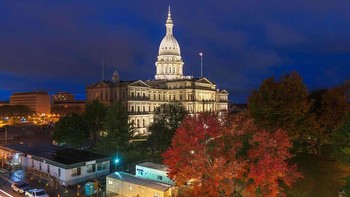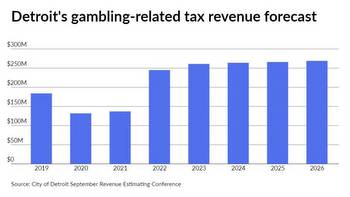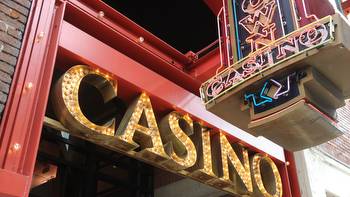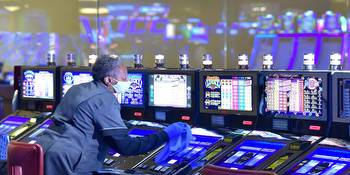Michigan bet big on online gambling. We’re now No. 1
Michigan is the No. 1 state for online gambling after an explosive 22% jump last year, according to data compiled by the American Gaming Association and released this week.
Bettors wagered a combined $1.92 billion through online gaming in Michigan last year — about $115,000 more than in No. 2 New Jersey, the industry association said in a new report.
Michigan began allowing internet gaming in 2021 and is one of six states that lets people bet on poker, blackjack, slot machines and other games on their phones and computers.
The internet gaming explosion has spurred a corresponding jump in tax revenue that caught many by surprise. Last year, Michigan pulled in $354 million from internet gaming, dwarfing initial estimates of $30 million to $40 million.
“This is significantly higher than what anyone figured at the time” of the law, said Eric Bussis, chief economist for the Michigan Department of Treasury.
- Michigan cord cutting accelerates; cable customers fall 13% in 2023
- Report: Michigan tumbling toward Mississippi territory in per capita income
- Detroit Lions playoff run means higher prices next year beyond tickets
The vast majority of that online gambling tax revenue goes to boost the state’s roughly $18 billion School Aid Fund, which is dedicated to educating Michigan’s K-12 public school students.
The bigger winner, Bussis said, has been the city of Detroit, which gets a share of the taxes from the internet gaming done through its three commercial casinos. That amounted to $89 million in 2023 and it’s projected to nearly double the city’s wagering taxes from $132 million in fiscal year 2020 to $256 million in fiscal year 2023.
Brandt Iden, a Republican former state representative who led the 2019 internet gaming legislation, said he was initially more bullish than state economists and had predicted $150 million in tax revenue.
The state is already pulling in twice that much, and Iden now thinks tax revenues could top half a billion dollars by 2026.
“I think this is real revenue that is going to benefit kids in classrooms,” said Iden, who left the Legislature in 2020 and now works for gaming company Fanatics Betting and Gaming. “It’s bringing real money very quickly.”
Overall, Michigan, which is the 10th most populous state, now ranks No. 5 in commercial gambling. That includes internet gaming, internet and casino sports betting, and casino gaming, according to the AGA.
Only Nevada, New Jersey, Pennsylvania and New York had larger total gaming receipts than Michigan’s $3.6 billion.
Michigan has long allowed gambling at Detroit’s three casinos and other tribal run facilities around the state.
Overall gaming revenues have risen with the expansion of internet gaming and sports betting, and Michigan has seen record lottery sales recently too, topping $5 billion in sales in 2021 before falling slightly last year.
The biggest change, however, has been the introduction and explosion of internet gaming.
Users download the apps from various sites, like Fanduel, DraftKings and Fanatics, that are associated with the state’s casinos. They can only gamble while in Michigan — as soon as a device leaves the state, the provider can detect it using the phone’s location and block betting.
So none of the money being wagered is from users in other states gambling through Michigan’s providers.
In 2021, the first year of legal online gambling, Michiganders bet $1.1 billion through the apps. That jumped to $1.6 billion in 2022 and $1.92 billion last year. It’s likely to soar again this year: Bettors wagered over $181 million in January, up 18 percent in the same month last year.
“That’s a lot of money,” said Mitch Bean, a former director of the House Fiscal Agency who is an economic consultant. He said it was hard to predict how much would be waged.
“I guess people like to gamble,” he said. “I don’t.”































